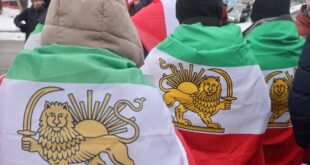 TEHRAN (Fars News Agency)- IAEA chief Mohammed ElBaradei is to report on whether the UN atomic agency should cut down on aid to Iran as part of UN sanctions on Tehran’s nuclear program.
TEHRAN (Fars News Agency)- IAEA chief Mohammed ElBaradei is to report on whether the UN atomic agency should cut down on aid to Iran as part of UN sanctions on Tehran’s nuclear program.
The report could lead to an emergency meeting later this month or in early February of the International Atomic Energy Agency’s 35-nation board of governors at IAEA headquarters in Vienna, diplomats said Friday.
The board had in November shelved a project that would have given safety expertise for a heavy-water reactor Iran is building and which will produce plutonium, which like enriched uranium is nuclear reactor.
The United Nations Security Council adopted a resolution on December 23 that imposed sanctions on Iran if it did not halt sensitive nuclear fuel.
Resolution 1737 also called for an examination of IAEA aid to Iran, which is meant to be peaceful and comprises some 20 projects including work on radiopharmaceutical kits, radiation treatment for cancer, and development of a nuclear waste disposal center.
Some countries, including several European states, are urging caution, saying it would be better to wait until a regularly scheduled IAEA board meeting in March to rule on the aid.
A senior European diplomat said the mood now among key board members including the United States was apparently to wait, especially if ElBaradei files his report on technical cooperation in February, only weeks before this board meeting on March 5.
“We’re not looking to end up in a situation where we have a divisive board,” the diplomat said, reporting to a split between developing countries, which are reluctant for any aid projects to be cut, and the United States and Europe, which want to crack down on Iran.
“I don’t anticipate this being a difficult period. The difficult period will be in March when we have not seen any reaction from Iran in terms of suspension,” of nuclear fuel work, the diplomat said.
ElBaradei is to file another report for the March board, this one on Iran’s compliance with the Security Council’s call for Tehran to halt the fuel work.
Iran continues to defy the UN demand, with Iranian President Mahmoud Ahmadinejad on Wednesday saying his country would soon “push the button” on production of nuclear fuel for industrial uses.
The Security Council resolution said states should “take the necessary measures to prevent the provision to Iran of any technical assistance or training” which might help Tehran make nuclear reactor fuel.”
ElBaradei sent a letter December 27 to the Slovenian chairman of the IAEA board to say his secretariat “will evaluate all IAEA technical cooperation projects for Iran in light of resolution 1737.”
Western nations had already in November challenged the IAEA’s aid programs to Iran.
British diplomat Carol Cliff, writing to the IAEA secretariat on behalf of her country as well as Australia, Canada, France and the United States, asked to what extent the IAEA was taking into account “sensitive activities” in Iran.
Questions asked by Cliff included: “Have any experts or scientists trained by the IAEA moved to jobs at Natanz or Isfahan,” referring to Iran’s two key facilities involved in enriching uranium.
A diplomat close to the IAEA said, “None of the projects enhance Iran’s nuclear capability so the move to cut technical cooperation is just a symbolic kick in the head.”
The UN resolution says, “Technical cooperation provided to Iran by the IAEA … shall only be for food, agricultural, medical, safety or other humanitarian purposes.”
Another diplomat said that evaluating what is humanitarian aid is “quite complicated” and that it was ElBaradei himself who had been pushing for a board meeting in order to have a political ruling on his mandate for the aid projects.
 Eurasia Press & News
Eurasia Press & News



